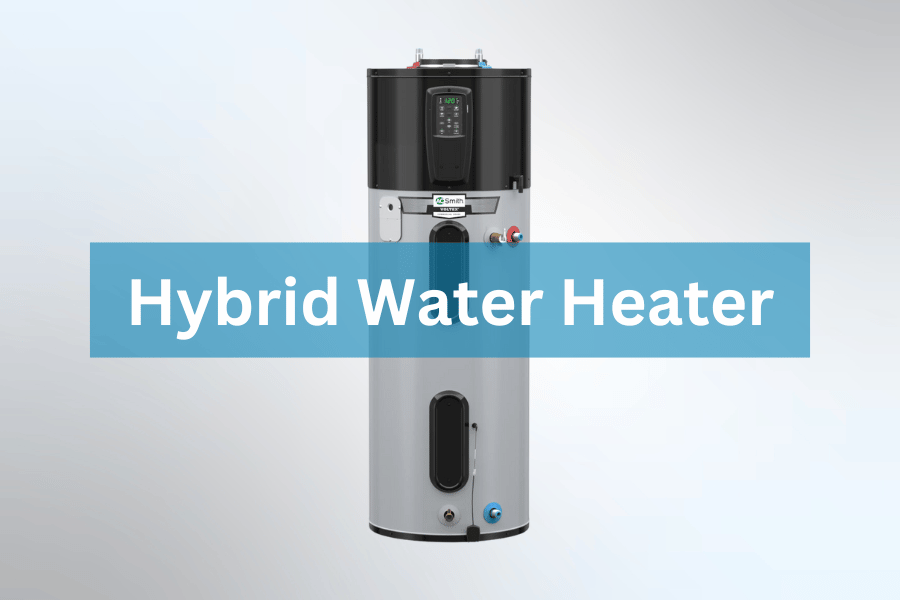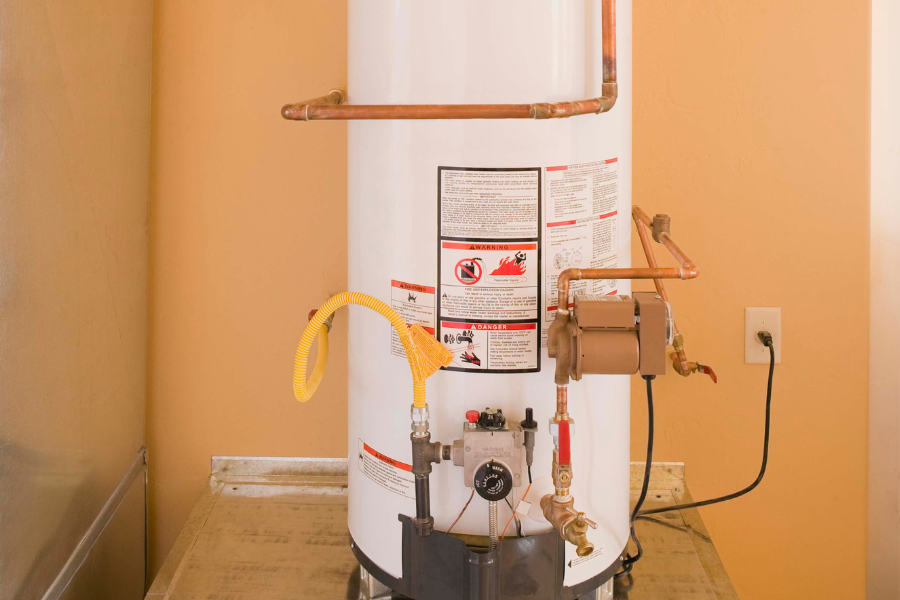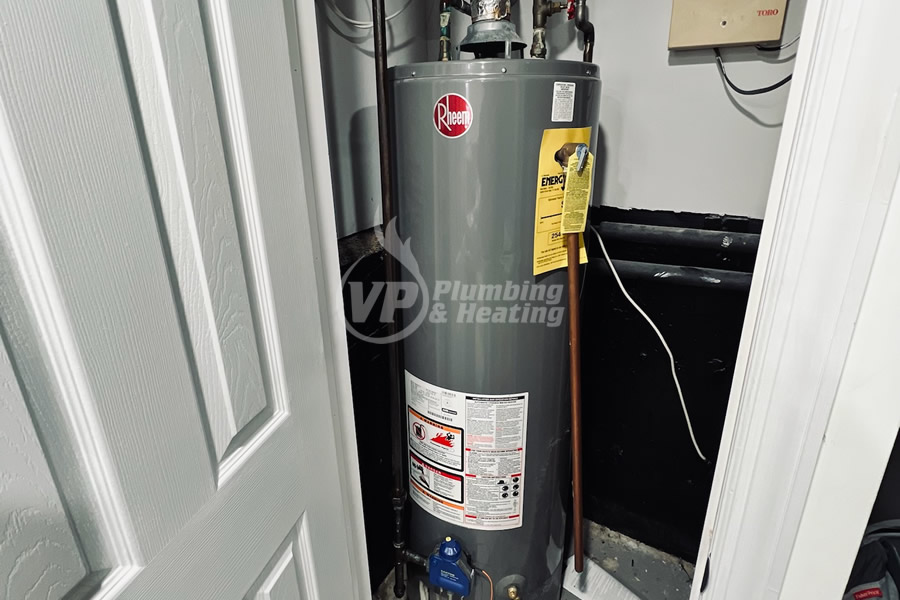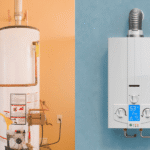
Complete Guide: Gas Hot Water Heater Repair in Suffolk County
April 22, 2025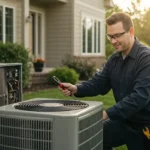
Air Conditioning in Suffolk County: What Homeowners Should Know
May 9, 2025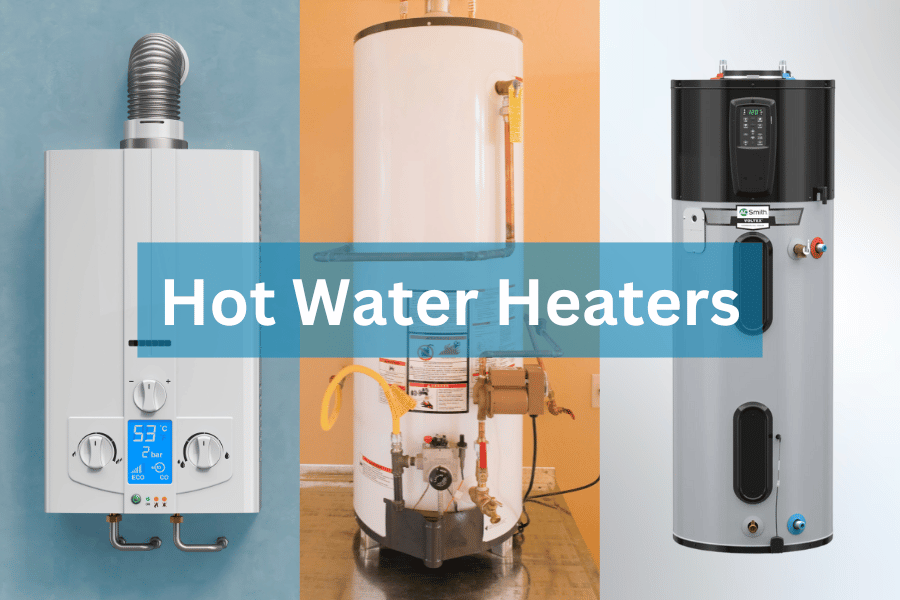
How to Choose the Right Water Heater for Your Suffolk County Home
Choosing the right water heater for your home is a critical decision. With so many options available, from traditional storage tanks to modern tankless systems, understanding your needs and the features of each type is essential. This guide will walk Suffolk County homeowners through the factors to consider, types of water heaters, and expert recommendations to ensure you make the best choice.
Why Your Water Heater Matters
Your water heater impacts more than just your morning shower. It affects:
- Energy Costs: Heating water accounts for about 20% of household energy use.
- Home Comfort: Insufficient hot water can disrupt daily routines.
- Environmental Impact: Choosing an energy-efficient model reduces your carbon footprint.
Fun Fact: The average American household uses 64 gallons of hot water daily.
Factors to Consider When Choosing a Water Heater
1. Household Size and Water Usage
- Small Homes (1-2 people): A tankless or small storage tank may suffice.
- Medium Homes (3-4 people): Consider a larger storage tank (50 gallons) or hybrid system.
- Large Homes (5+ people): A high-capacity storage tank or multiple tankless units ensures sufficient hot water.
2. Energy Efficiency
Modern water heaters come with energy ratings to help you choose an eco-friendly option. Look for:
- Energy Star Certification for top efficiency.
- Advanced technologies like heat pumps or condensing gas models.
3. Fuel Type
Your choice may depend on existing hookups:
- Electric: Easy to install but may cost more to run.
- Natural Gas: Offers faster heating and lower operational costs.
- Propane or Solar: Good for off-grid or eco-conscious homeowners.
4. Space Availability
- A tankless system saves space and mounts on walls.
- Traditional storage tanks require a designated area.
Types of Water Heaters
1. Traditional Storage Tank
- How It Works: Stores hot water in a tank and refills as water is used.
- Pros: Affordable upfront, reliable for consistent usage.
- Cons: Can run out of hot water, less energy-efficient.
Ideal For: Homes with predictable hot water needs and budget-conscious homeowners.
2. Tankless (On-Demand)
- How It Works: Heats water as needed, without storing it in a tank.
- Pros: Energy-efficient, unlimited hot water, space-saving design.
- Cons: Higher upfront cost, may struggle with simultaneous high-demand usage.
Ideal For: Homes with limited space or eco-conscious homeowners.
Fun Fact: Tankless water heaters last up to 20 years, nearly double the lifespan of traditional models.
3. Hybrid (Heat Pump)
- How It Works: Combines a traditional tank with a heat pump that captures ambient heat to warm the water.
- Pros: Extremely energy-efficient, lower operating costs.
- Cons: Higher initial cost, requires space for installation.
Ideal For: Large households looking to reduce energy costs.
Installation Considerations
Professional Installation is Key
Improper installation can lead to leaks, inefficient performance, or safety hazards. Hiring a licensed plumber ensures:
- Correct sizing and placement.
- Adherence to local building codes.
- Proper hookup to gas, electric, or water lines.
Signs It’s Time to Replace Your Water Heater
- Hot water runs out faster than usual.
- Discolored or rusty water.
- Strange noises, such as popping or rumbling.
- Leaks around the base of the unit.
If your water heater is over 10 years old, it’s likely time for a replacement.
Cost Comparison: Tank vs. Tankless Water Heaters
| Feature | Storage Tank (Product Only) | Tankless (Product Only) |
|---|---|---|
| Upfront Cost | Lower ($1,000 – $2,500) | Higher ($2,000 – $3,000) |
| Operating Cost | Higher | Lower |
| Hot Water Supply | Limited by tank size | Unlimited |
| Lifespan | 10–15 years | 20+ years |
Note: The costs listed above are for the product only and do not include installation. Installation costs will vary based on the complexity of the project and any additional modifications needed, such as upgrading plumbing or electrical systems.
Pro Tip: While tankless heaters cost more upfront, their energy efficiency can lead to significant savings on utility bills over time.
Common Water Heater Myths—Debunked!
Myth: Tankless water heaters provide instant hot water.
Truth: While they heat water on demand, it still takes time to reach your faucet.Myth: Bigger water heaters are always better.
Truth: Oversizing wastes energy and increases costs unnecessarily.
Conclusion
Choosing the right water heater depends on your household size, energy preferences, and budget. Whether you opt for a traditional tank, tankless, or hybrid model, making an informed decision ensures reliable hot water and long-term savings.
Still unsure which water heater is best for your Suffolk County home? Contact VP Plumbing & Heating for expert advice and professional installation services.
Visit our Water Heating Systems page for more details.




